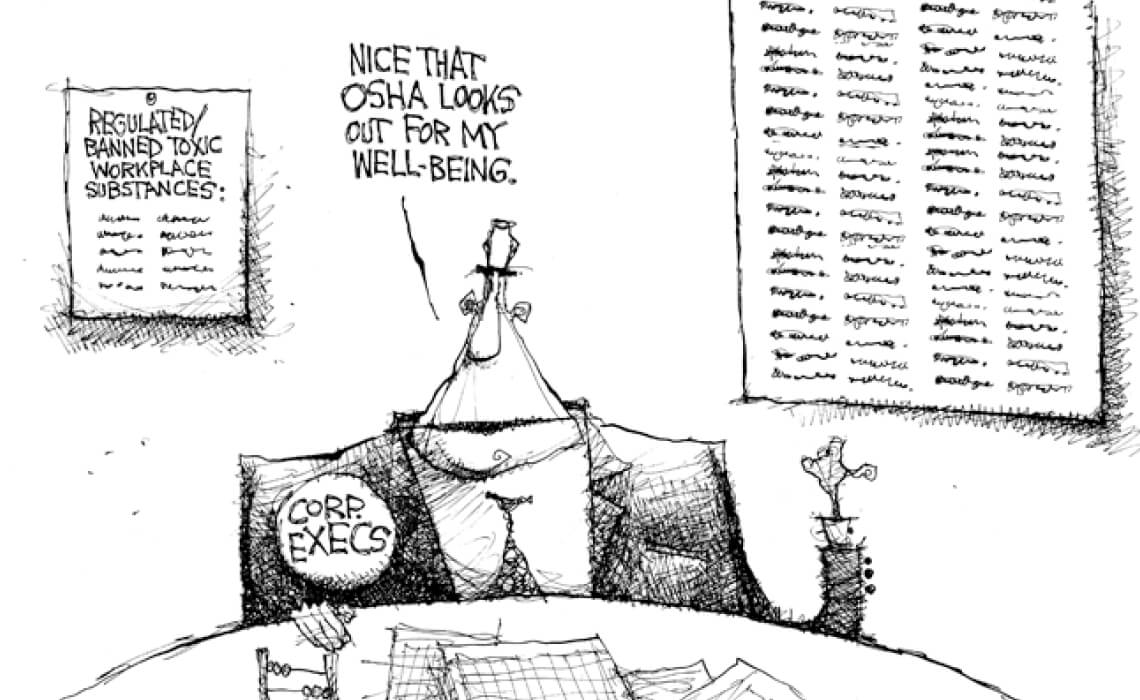Original reporting

Disappearing patient choice courtesy of private health insurer?
Oxford rolls out small business renewal plans, increasing patient cost for out-of-network care by more than 50 percent.
U.S. to nuclear power industry: please take our subsidies
The market has said "no," but Congress and the White House are still sweetening the pot, hoping to hear "yes."
Calls to end or limit oil and gas industry subsidies renewed
Following large first-quarter earnings announcements from major oil companies, Senate Finance Committee Chair Max Baucus announced plans to introduce legislation to end tax incentives for the largest oil and gas companies, and President Obama renewed his call to eliminate those benefits for the entire industry.
Making patients have "skin in the game"
[From 2011] A health care cost-control theory’s breakthrough moment in Washington comes in the face of research documenting deep flaws in the hypothesis.
SEC concerned about regulating too tightly?
Critics question why the SEC is announcing a re-examination of small business regulation when parts of the reform effort are incomplete, in some cases due to limited resources.
Business leaders: give us more government
Barge companies are among those asking Congress to take better care of America’s waterways. It could mean spending, and maybe even taxing.
Playing the "regulatory uncertainty" card
Claims that investment is paralyzed because businesses are uncertain as to what regulations are coming down the pike turn out not to be backed by specifics.
A new deficit narrative?
Rep. Jan Schakowsky (D-IL) is seeking to change a deficit dialogue that focuses on cutting programs with a new bill that would raise $78 billion to preserve them by increasing tax rates on the wealthy.
If it's broke, why not fix it?
In 2007, New Jersey created a commission that promised a path to streamlining its inefficient patchwork of municipalities. But that entity has been defunded before it had a chance to fulfill its mission.
Vocational education's moment in the sun
In the wake of a high-profile Harvard report, vocational education — or as it is now generally known, career and technical education — is back on the policy agenda. But much of the debate about “the new vo-tech” assumes that American students can’t be prepared to start careers at the age of 18. What’s behind the idea that post-secondary education is essential for today’s workplace? And what might a model that didn’t depend on it look like?
DOE actively misleads on risks of radiation exposure
Multiple agencies unable or unwilling to describe minimum level of airborne contamination that would generate concern about medium- and long-term health effects.